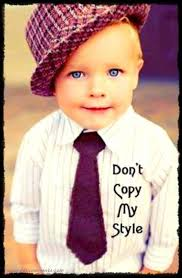Carmen writes in to say that she is a fan of the Australian fantasy TV series Cleverman on the ABC, which stars Hunter Page-Lochard in the title role. The TV series takes several themes from Australian Indigenous culture and blends them with current ideas in Australian society and politics. The “clever man” is a shaman in Australian Aboriginal culture, and in the show he becomes an Indigenous superhero with mystical powers.
Carmen would be interested in seeing a blog post on the names of the characters in the show, and she also wonders whether there will be any increase in the use of baby names from an Indigenous Australian background because of the show’s influence.
I wonder too, and whether we will even find out, as there is so little data gathering in Australia. Cleverman screens in the US as well, so we’ll see if there’s any impact there.
HUMAN CHARACTERS
Koen West: The titular Cleverman. Koen is a Dutch name, a form of Conrad, as well as an Irish surname sometimes used as a first name. It also brings to mind the Jewish surname Cohen, used for the priestly line, and perhaps also the Zen riddle called the koan. It feels both cross-cultural and religious (Koen West has both white and Aboriginal family members).
Waruu West (Koen’s half-brother): Waruu means “crow” in the Gamilaraay language from New South Wales and southern Queensland. In Aboriginal myth, Crow is one of the ancestor spirits.
Nerida West (Waruu’s wife): Nerida means “water lily” in an Aboriginal language; a reasonably familiar name in Australia.
Alinta West (Waruu and Nerida’s daughter): Alinta means “flame” in the Kaurna language from South Australia and has been used in a previous TV show.
Linda West (Waruu’s mother, Koen’s adoptive mother)
James “Jimmy” West (Koen and Waruu’s uncle): The previous Cleverman before he chose Koen as his successor.
Jarrod Slade
Dr Charlotte Cleary (Jarrod’s wife)
Blair Finch (male, Koen’s friend)
Ash Kerry (Blair’s girlfriend)
Belinda Frosche
Geoff Matthews
Jane O’Grady
Virgil (female)
Frankie (female)
Rowena
Ludo
Taki
Eve
Max
HAIRYPEOPLE
The hairypeople are inspired by Aboriginal legends from the north-east of New South Wales: in some stories they are dwarfish and in others giants; they have been used as bogeyman figures.
In the Cleverman universe, hairypeople are humanoid, but with DNA sufficiently different to make them a separate species. However they share cultural similarities with Australian Aborigines, including language, relationship to the land, and the Dreamtime. They are long-lived, strong, fast, and tough, and notable for the thick hair which grows all over their bodies. They have unusually bright blue eyes and long hard fingernails that can cut through flesh.
In the TV series, hairypeople remained hidden from humans for 80 000 years, only emerging a few months before the story begins. After discovering they exist, the Australian government regards them as subhuman and enacts laws to keep them contained. Some hairypeople choose to pass as human by shaving off their hair and wearing coloured contact lenses.
Names of Hairypeople Characters
Araluen (female): Araluen is a small town in the Southern Tablelands region of New South Wales. Its name means “water lily” in the local language, as there were once many billabongs covered in lilies in the area.
Boondee (male, Araluen’s husband): A boondee is a heavy-headed club in the Euahlayi language from the Lightning Ridge area of far northern New South Wales and south-west Queensland.
Djukara (male, Araluen and Boondee’s son)
Latani (female, Djukara’s sister): A Polynesian name used on the Australian island Norfolk Island. It may be deliberately multicultural, as Latani wishes for hairypeople and humans to live in harmony. It sounds similar to tarni, meaning “waves, surf” in the Kaurna language of South Australia.
Jyra (female, Latani’s sister)
Harry (male): Because Harry sounds a little like hairy?
Maliyan (male): Maliyan means “wedge-tailed eagle” in the Gamilaraay language. In the show Maliyan is violent, suitable for someone named after a bird of prey.
Mungo (male): Lake Mungo is a dry lake in south-west New South Wales, famous as a site where the oldest examples of Australian human remains have been found. The lake is named after a Scottish saint, whose name probably means “dog lord” in British.
Kulya (male): Kulya is a native vegetable similar to sweet potato grown in Western Australia.
Lena (female): Lena is a word for “water” in the Palwa language from Tasmania.
SPIRITS
Kora (a woman from the spirit world): Kora means “companion” in the Awabakal language from the mid-north coast of New South Wales.
POLL RESULTS
62% of people thought that the TV show Cleverman might influence people to choose an indigenous Australian name for their baby. 53% thought the influence would probably be small, while 9% thought it could have a significant impact. Meanwhile, 29% of people thought it probably wouldn’t make any real difference to the names people choose, and 9% didn’t believe a single TV show could influence people’s choices.
79% of people reported that the names they had chosen for their own children, or were considering using, had been influenced by a TV show in some way. 26% had a name on their name list that they had seen on a TV show, 23% had noticed a change in the style of names they liked after watching a particular TV show, 16% had discovered that a name they chose or considered had become well known after being featured in a TV show, and 14% had named at least one of their children after a TV character. The remaining 21% said that no TV show had influenced their name choices or preferences in any way.
















